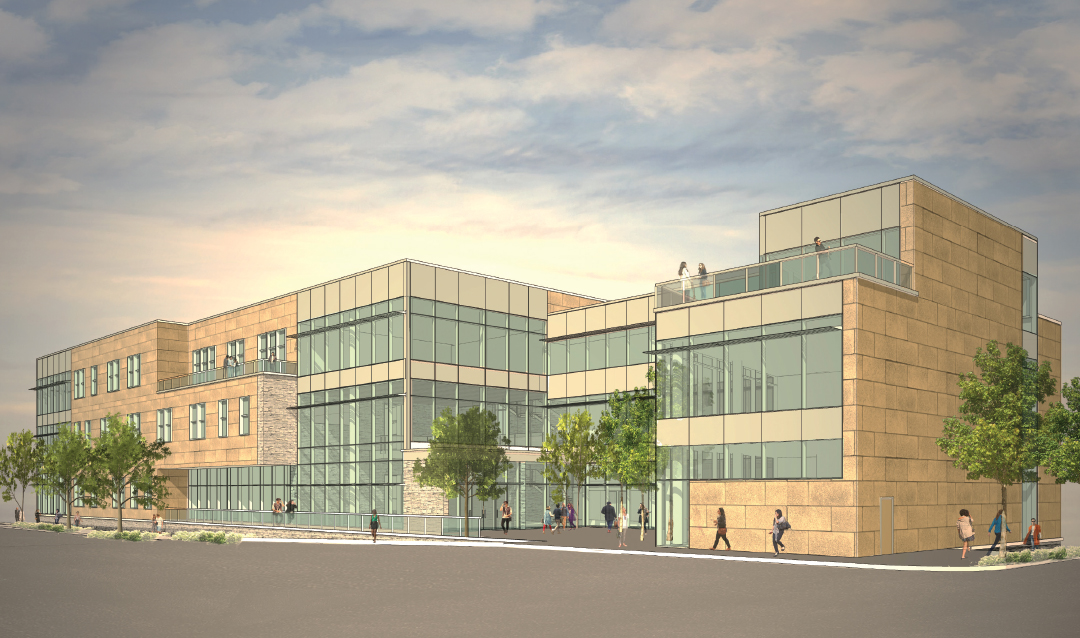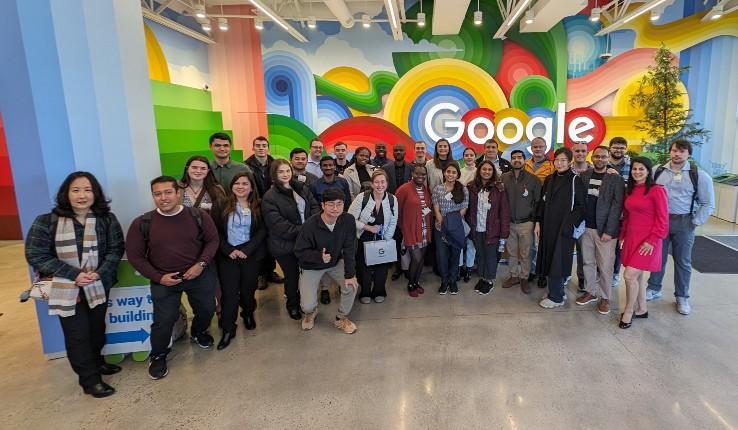MBA Programs
Break the Mold
The College of Business offers a one-year Master’s in Business Administration program, launched in 2017, and a Flex MBA program, which provides students with an opportunity to earn an MBA part-time—on campus or online.
The 1-MBA is geared toward career changers as well as those who want to accelerate their business careers. In addition to the one-year program length, other innovations include a three-tiered mentoring system—with a faculty member, a company executive and a career coach—and a consulting practicum.
What differentiates the flex program, says Oliver Yao, associate dean for graduate programs, is that it’s taught “in a synchronous way.” Instead of watching pre-recorded sessions, students can join courses online in real time through Lehigh’s Classroom LIVE web-based interface, and, thus, participate in live classroom discussions and interact with professors and fellow working professionals.
“It offers students ultimate flexibility,” Yao says, if, for example, students attending courses on campus get tied up at their offices as they work to advance their careers. If they are unable to get to campus on time, he says, they can join the courses online.
A new concentration in business analytics was launched in Fall 2019 that will expose students to data collection, storage and retrieval, predictive models and applications for improved decision-making.
Gena Petrunyak ’13, who works for Johnson & Johnson, started the Flex MBA program while living in central New Jersey. With her job requiring frequent travel, she says she didn’t “miss a beat” because she was able to join classes online when necessary. Concentrating in marketing, she plans to finish her degree remotely from her new home in Rhode Island.
“Through Flex, I’ve been able to plan a wedding, compete in multiple marathons and Ironmans, travel the world, volunteer with Girls on the Run and buy a house,” she says. “It truly gives you the flexibility to continue with your life and achieve another goal at your own pace.”
Pat Costa ’13 ’19 MBA opted for the 1-MBA. After graduating from Lehigh with a degree in marketing, he joined the global drug company Sanofi, initially as part of a marketing and sales rotational program. He moved into a full-time manager position, but the more he learned about the job, the more he realized it wasn’t what he wanted to do.
“I felt stuck in my career, ” Costa says, “and all of the external opportunities I looked at were either lateral moves at best or a step down at worst.”
Costa says he came to realize he needed to earn an MBA to get the type of job he wanted. The 1-MBA program “was perfect for me,” he says, “because it allowed me to get a graduate degree as quickly as possible without being forced to take an extended break from the workforce.”
For his consulting practicum, Costa was part of a team that worked with a struggling textile manufacturing company to help it streamline its production methods and more strategically target customers. For the capstone course, his team worked with a hospital and health network to build a long-term strategic plan that took into account demographic changes in its patient base and technological changes in the healthcare industry.
Costa’s career track has taken a pivotal turn. He joined a management rotation program at Boehringer Ingelheim, a pharmaceutical company based in Connecticut. Designed for recent MBA graduates, the program consists of multiple rotations through the company’s business units. Costa will work in strategic areas such as marketing analytics, then be placed into a permanent position.
“To be able to get this type of job is exactly why I went back to business school,” Costa says.
Executive Education
Breaks Out of the Box
Innovator Alison McGrath Peirce joined the College of Business in March as executive director of the Vistex Institute for Executive Learning and Research. Tasked with growing Lehigh’s specialized business and leadership development programming, Peirce is spearheading an “E to E” (Engineer to Executive) program that focuses on teaching business savvy to engineers interested in moving into their company’s executive suite.
“People who are engineers are super rational. They’re used to solving a problem. They think there’s one right answer,” she says. “But in business, there’s not just one question. There are multiple questions, and it’s usually evaluating a variety of good options or a variety of not-so-good options. So they have to be more tolerant of ambiguity, they have to be more versatile with their interpersonal skills and not solely rely on their analytical skills.”
A new “E to E” course on “Transformational Leadership: Skills for Impact, Persuasion and Decision-Making” will be first offered in May 2020. The course will have three components: group decision-making, personal and interpersonal leadership and strategic leadership. It will explore working with teams, understanding oneself and persuading others through ethical means of influence.
In offering the course, Lehigh recognizes that those with a technical education and background—whether accounting, finance or data analytics—get hired for those skills. However, those skills aren’t necessarily the ones that allow them to move up. The course aims to provide tools for transitioning into executive roles.
The Vistex Institute provides both open and customized programs for companies and individuals, including in project management, finance, leadership and negotiation, and supply chain management. Courses are offered intermittently over several months, allowing for more flexibility. New initiatives, Peirce says, will focus on the intersection of technology and business.
“Technology is becoming the fuel of business,” she says. “You have to be able to operate in a traditional business domain, but you also have to be conversant with the elements of technology, the problems that technology solves and some of the constraints. If you can marry those two, it really provides a very long opportunity of success over the course of a career.”
Illustrations by Matt Herring








